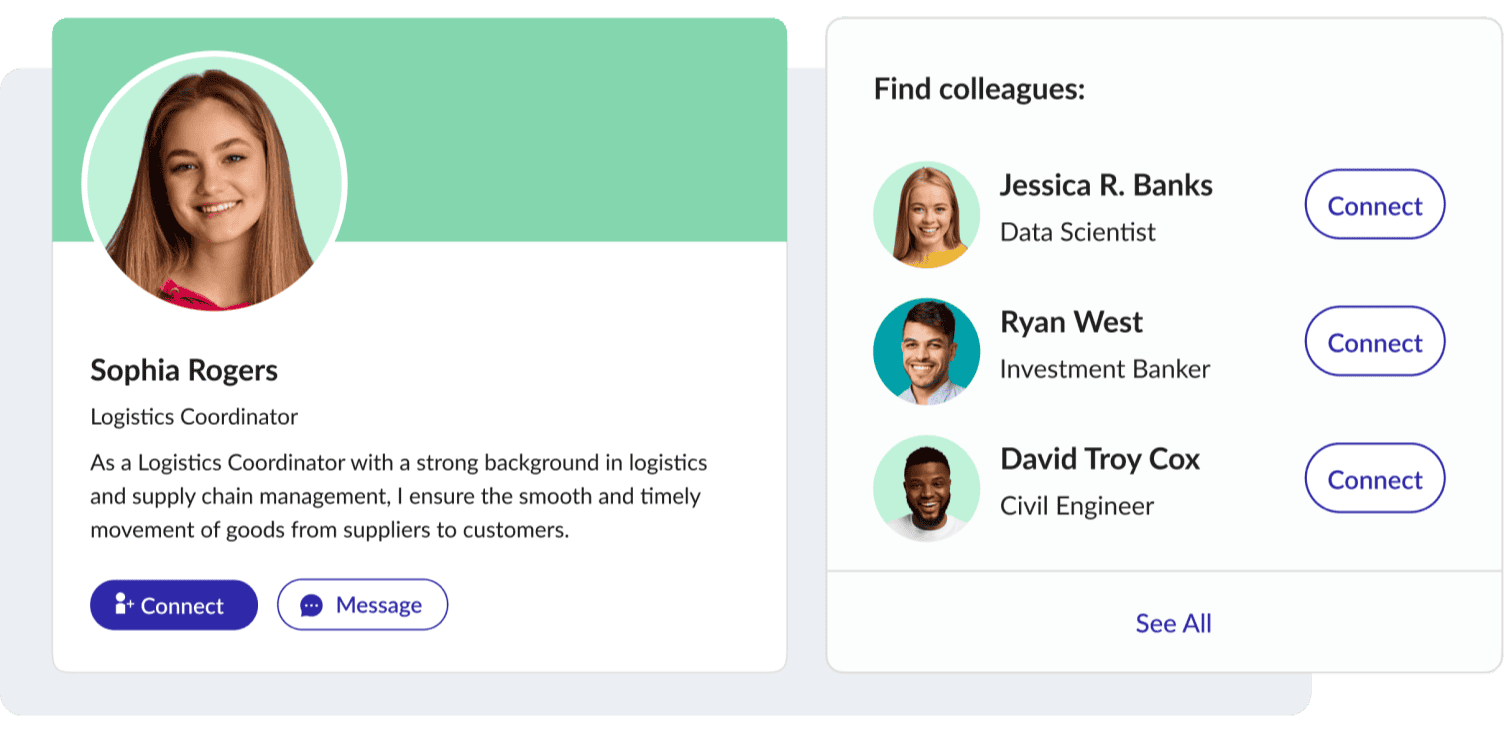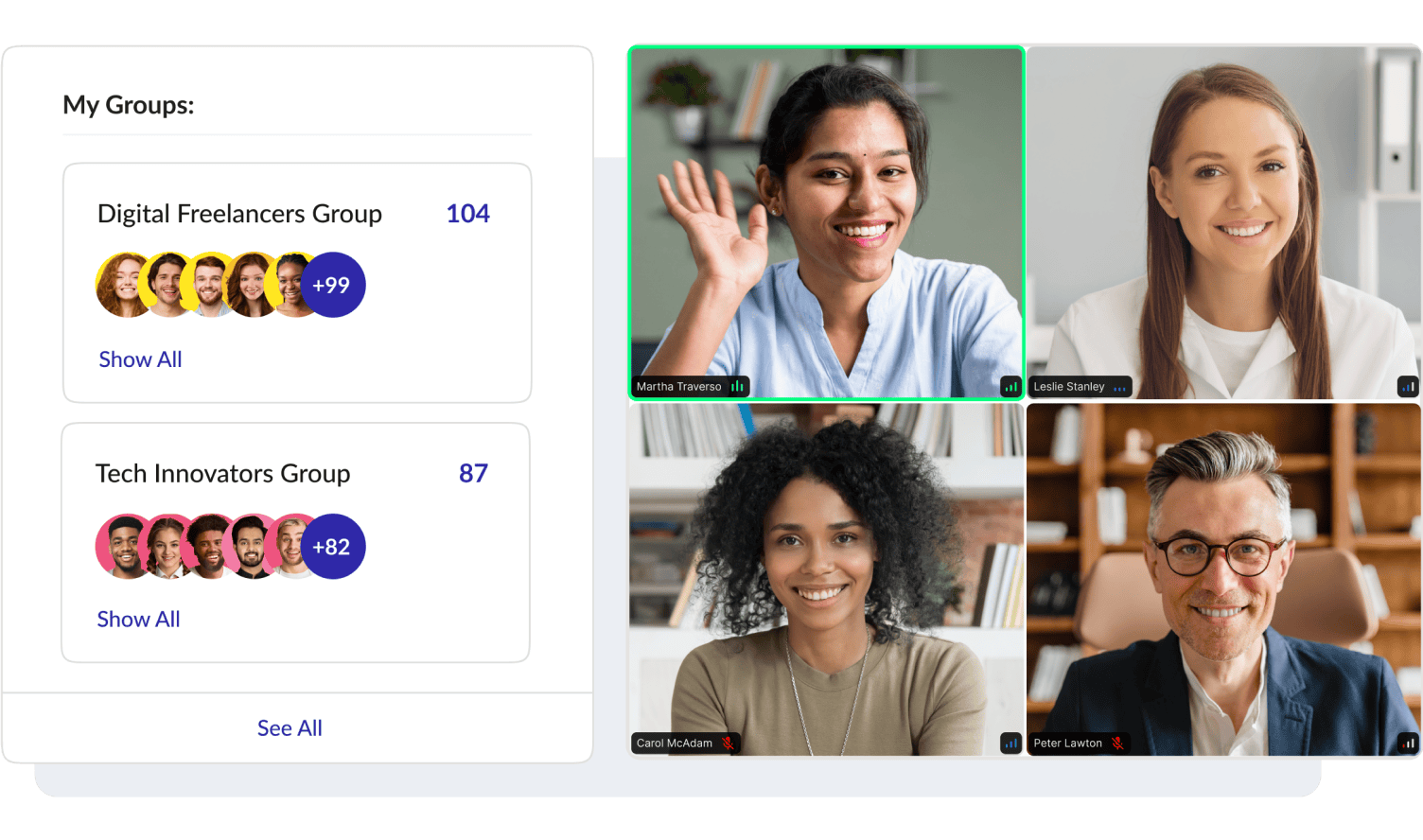
How to Ask For A Professional Reference
Discover expert tips on how to ask for professional references and boost your job prospects.

Networking is building and nurturing productive professional relationships to advance your career. It often gets a bad reputation for being opportunistic or transactional, but it is an effective method for making genuine, mutually beneficial connections if you approach it with the right mindset.
Networking is the process of making connections and building helpful relationships. It can occur through online and offline channels, with the overarching goal of fostering relationships with people who can connect you to new work opportunities and help you grow as a professional.

Networking can open a lot of doors, no matter what industry you work in. Here are just a few of the many advantages of building a robust professional network.
In a highly competitive job market, you may need more than a strong resume and application to stand out amongst hundreds or thousands of other candidates. A referral, introduction, or even a reshare of an “open to work” post on social media can make a huge difference, and a more extensive network makes this easier. A larger network also increases your chances of hearing about opportunities you may not have encountered otherwise or are not posted through public channels.
Can you network your way to your next job?
A 2020 LinkedIn survey found that almost three-quarters (73%) of respondents secured a job through someone they know, making an introduction or a connection. 70% found work through a personal connection to someone within the company.

Besides job hunting, there are many other ways your network could support you (and vice versa). Your organization may need a photographer for an upcoming event. Or perhaps you’re starting a side hustle and need collaborators. The connections you make today could become a client, professional reference, mentor, or someone who can help you in some way, personally or professionally, in the future.
Networking isn’t just small talk. Building authentic connections with people requires strong interpersonal skills, like clear communication, attentive listening, and empathy. The more you network, the more you hone these abilities, valuable in other professional situations like work presentations, meetings, and job interviews.
When you think of networking, you likely picture a large event with a lot of people in blazers handing out business cards. This is one way to network, but it’s not the only way. Networking can occur in a group or one-on-one setting, like reaching out to a connection on LinkedIn and arranging a virtual coffee chat. There are also lots of different types of people you might consider connecting with.
For example, you could ‘network up’ by connecting with more experienced professionals in your industry who could offer advice or recommendations. ‘Network across’ by building connections with other professionals at the same career stage to build more of a support system. Lastly, ‘network out’ by virtually connecting with people outside your local area or attending events outside your city or country.
How networking helps women advance in their careers
A 2023 study from Chief found that more than 80% of professional women at the manager level and above report using networking to advance their careers, including joining a board (90%), breaking into the C-suite (84%), and accepting new jobs with better pay (81%).

You can network anywhere. But, depending on the environment, there are different factors to consider. Here are a few of the most common online and offline networking methods and how to make the most of them.
While LinkedIn is a social media platform designed specifically for networking, you can make connections on any social network. To start, make sure your profile is professional and up-to-date. Then, look for people you admire in your field to follow and engage with.
Like and comment on their posts or send a message introducing yourself. Let them know you want to learn more about them or share an interesting resource to offer value. You could also ask a mutual friend to introduce you.

From workshops to online conferences, virtual events are a great way to meet other industry professionals and grow your network from the comfort of your home. Before the event, consider sharing a post letting your current network know you’re attending and ask people to comment if they will also be there.
During the event, engage with participants in chat rooms or virtual breakout sessions. Also, check social media to see who’s talking about the event or sharing updates with the event hashtag. Lastly, don’t forget to check the event attendee list to see if there are any specific people you want to meet, and be sure to follow up with anybody you meet over social media or email.
Most industries have professional online communities. Some are broad and open to anyone in that field, and others are more niche and designed for people who live in a certain geographic area or belong to a specific demographic. Use online platforms like LinkedIn, Meetup, Eventbrite, or Facebook Groups to find relevant groups.
When you find one, start networking by participating in discussions or attending events hosted by the community. Contribute value to the group by sharing insights, asking relevant questions, offering feedback or support, or starting conversations. This will help you build trust, credibility, and relationships with other members.

Networking events are gatherings organized for people to make professional connections. Similar to online communities, they can be open to anybody or have a focus or niche, like a networking event for people in tech or young professionals.
In-person networking events can be overwhelming, so it helps to approach them with a goal in mind. Do you want to get more comfortable talking to new people, or are you trying to connect with a specific kind of person? Additionally, you should prepare a clear, concise and memorable introduction and ask open-ended questions to spark meaningful conversations.
In-person professional events like conferences, panel discussions, lectures and workshops are all great ways to make valuable career connections. Since these events usually have a learning component, use the topics to start conversations with other attendees.
Ask them how they found the presentation or what their experience with the topic was beforehand. Then, see if they’d be open to staying in touch and exchanging contact information.
Most industries have professional associations where you can meet people in your area and connect on local issues. Before you join, do some research to ensure it aligns with your interests, goals, and values.
Once you join, be an active participant. Attend events, volunteer, and actively contribute to conversations. This will help you get to know your fellow members and build genuine relationships.
It may seem counter-intuitive, but joining clubs or groups related to your personal interests can help you grow your professional network. The key is to have fun, be genuine, and let relationships develop naturally.
By being authentic and not overly focused on networking, you’ll form meaningful connections that benefit your professional life without feeling forced.

Networking can feel a little uncomfortable for introverts, but it’s a skill anyone can master. Here are a few ways to make the experience more comfortable.
Successful networking shouldn’t be about collecting as many contacts as possible. Aim for quality over quantity. It’s better to connect with a few like-minded people that can genuinely add value to your life — and vice versa.
These meaningful relationships are more likely to lead to opportunities and support because they are built on mutual respect and shared interests, not just numbers. Focus on making real connections rather than just expanding your contact list, and you'll foster a strong, supportive network that will help you achieve your biggest career goals.

Yes and like any skill, the more you practice, the better you get. Effective networking builds on soft skills like active listening, communication, and engaging conversation. The goal is to build and maintain relationships with people from professional and social circles to create mutually beneficial connections that can eventually lead to opportunities.
Common networking mistakes include targeting the wrong people, having an unclear "ask," being too transactional, and failing to follow up. Other missteps are being overly aggressive, overlooking existing connections, lack of preparation, and neglecting junior-level contacts. Effective networking requires strategic targeting, clear asks, consistent follow-ups, authenticity, and leveraging existing connections. Often, it's better to help someone before asking a favor.
Effective follow-up is crucial for maintaining professional relationships. Here are some tactics to maximize the value you get from networking:
Modernize your hiring process with expert insights and advice.